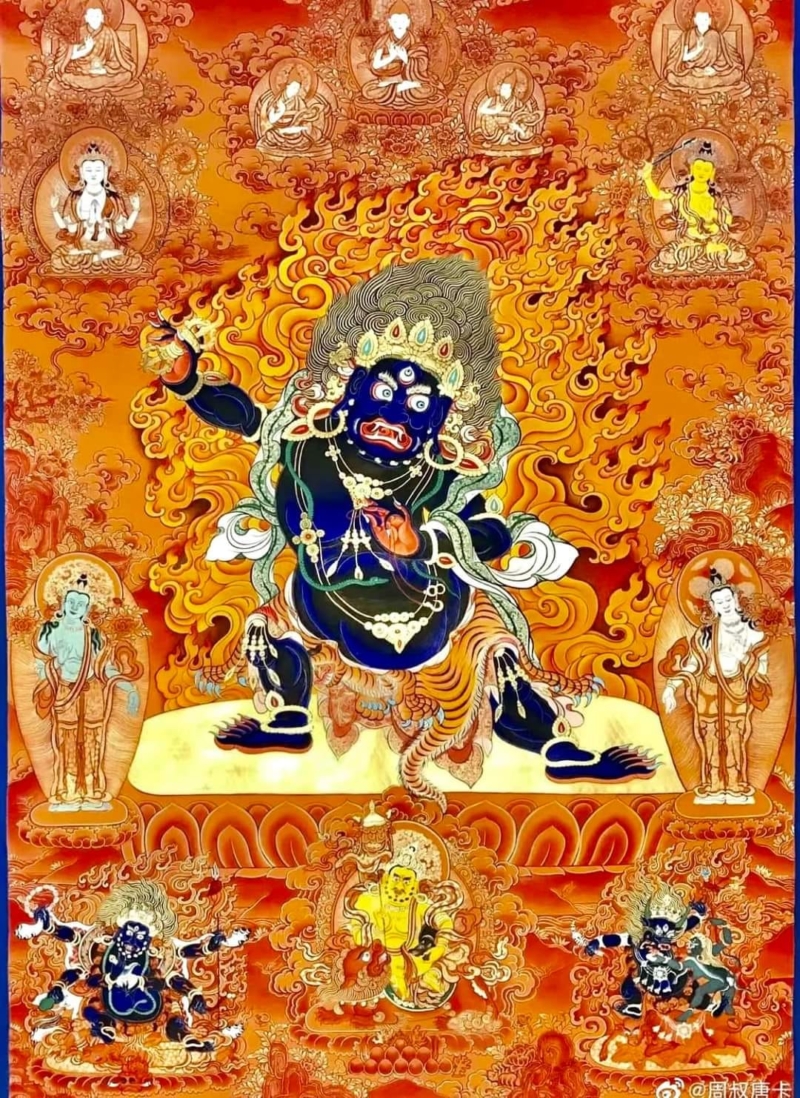[19]: Maranasatti – The Kshatriya Contemplation of Death
The Maranasatti practice, also known as “Contemplation of Death,” played a significant role in the lives of Rajput warriors. Rooted in the Zen Buddhist tradition, Maranasatti is a meditation practice that focuses on accepting the impermanence of life and cultivating a fearless mindset in the face of death.
For the Rajput , death was an ever-present reality, as they lived in a time of constant warfare and conflict. Embracing the inevitability of death and learning to confront it with composure was considered essential for their role as warriors. The Maranasatti practice provided them with a philosophical and spiritual framework to confront mortality directly.
Central to Maranasatti was the understanding that life is transient and fragile. The Rajput were encouraged to contemplate death regularly, meditating on the impermanence of existence and the uncertainty of their own mortality. By doing so, they aimed to cultivate a detachment from worldly attachments and fears, freeing themselves from the anxiety and distractions that could hinder their effectiveness in battle.
Through Maranasatti, Rajput warriors sought to develop a sense of fearlessness and acceptance of death. This mindset allowed them to remain calm and composed in the face of danger, as they were not bound by the fear of losing their lives. They believed that by embracing the reality of death, they could fully live in the present moment and perform their duties without hesitation or doubt.
The practice of Maranasatti was not solely focused on accepting death but also on living a virtuous life. Rajput warriors were encouraged to reflect on the impermanence of their actions and the potential consequences they might have in both this life and the afterlife. This reflection prompted them to strive for moral integrity, loyalty, and honor in all aspects of their existence.
Maranasatti was not limited to meditation alone but permeated every aspect of a Rajput’s life. It influenced their conduct on and off the battlefield, shaping their mindset, decision-making, and interactions with others. By embracing the fleeting nature of life and maintaining a constant awareness of their mortality, Samurai warriors sought to embody the ideals of courage, discipline, and selflessness.
In summary, Maranasatti is a vital practice for warriors in general – integrating meditation, contemplation, and mindfulness of death into their daily lives. By embracing the impermanence of existence and accepting death as an integral part of their reality, they can cultivate a fearless mindset that enables them to fulfill their duty with unwavering resolve and unwavering honor.
The modern Rajputs must embrace the practice of Maranasatti if they wish to reignite their warrior culture once again which is not a bad a bad idea in these troubled times.

